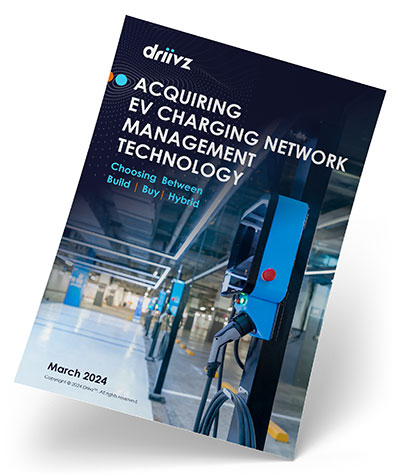With more than 19 countries passing the 5% tipping point in EV sales, including much of Europe and now the U.S., we are at the threshold of mass EV adoption. Consider Norway. In 2022, eight years after Norway crossed the tipping point, EVs accounted for 79% of new passenger car registrations. Over the same period, Norway’s public EV charging infrastructure grew as well, to the point that today there’s virtually always a charging point nearby.
How can EV charging operators capitalize on the coming exponential growth in EV adoption? According to analysts at Bain & Company, EV charging infrastructure and services represent a huge business opportunity. But, they say, profitability will depend on delivering an excellent customer experience.
Whether you are a new entrant to the field or an existing EV charging provider looking to migrate to a new platform, the EV charging management software you choose will have a significant impact on your success. Here are the key features to look for when making this critical decision.

1.Excellence in EV charging operations management
Operations management provides the tools you need to continuously monitor and manage your EV charging network, including real-time notifications of issues and the ability to fix problems remotely. Advanced features include automated self-healing capabilities, easy-to-use dashboard displays of operational status, and analytics and reports for decision-makers. Future-proofing capabilities include:
- Configurability to support changing business processes
- API-based support for your existing business management applications, other solutions, or your own custom-developed tools
- Vendor-agnostic support for the full range of charger types
- Open support for industry protocols and standards, such as OCPP 2.0.1 and ISO 15118
2. EV charging billing and payments management
Providing a simple payment process that lets drivers pay the way they want is critical to EV driver satisfaction. That means you need a billing system that supports multiple payment options and payment gateways as well as multiple business models, including site hosting and partnerships. Advanced features include real-time rating, dynamic cost factoring, tax management, settlements and reconciliations, and analytics that reveal driver patterns and data that can help you optimize your business. International operators will also need support for multiple currencies and tariffs.
3.EV smart charging and energy management
This capability uses data and algorithms to determine when and how an EV plugged into a smart charger will receive power. It weighs factors like the cost of electricity, its availability, the number of cars receiving charging, and driver needs to balance loads, distribute power to chargers, and ensure that all cars are fully charged when the drivers need them. Advanced smart EV charging and energy management features include the ability to:
- Manage energy consumption at the site, campus and micro-grid level
- Integrate energy from the grid, local renewable sources, and locally stored energy
- Optimize use of renewable energy for charging
- Future-proof your software investment with support for power utility demand response programs and vehicle-to-grid (V2G) bi-directional energy flows when that technology becomes generally available
4.White-label self-service EV driver tools
Look for a software provider that offers a fully featured, intuitive driver application and online portal that you can brand with your look and feel to increase your drivers’ loyalty and increase satisfaction with your services. The app should provide real-time charger location and availability, detailed information on your billing plans and driver transaction history, and a way for drivers to manage their payment methods. Advanced features include out-of-network charger locations, reserve-ahead capability, and route planning and navigation with points of interest.
5.EV roaming
Support for EV roaming allows your customers to charge at another service provider’s charging station and have the charging transaction seamlessly integrated with their normal method of payment. Although appearing seamless to consumers, delivering electric vehicle roaming services requires negotiated service and clearing agreements among EV charging providers, comprehensive communications standards, various protocols, and support of multiple languages, currencies, tax rates, and regulations. Look for an EV charging management solution that integrates with all roaming platforms and supports one-to-one roaming protocols like OCPI.
6.Rigorous support for security and privacy
Be sure your software provider follows and supports IT security best practices to protect the data flowing between EV chargers, EVs, your management software in the cloud, and the grid. The software itself should support industry standards that address security, including OCPP 2.0.1 and ISO 15118.20. Also, make sure the software complies with all data privacy regulations protecting driver personally identifiable information, or PII, including the General Data Protection Regulation (GDPR) in the EU and the California Consumer Privacy Act (CCPA), and the new California Privacy Rights Act (CPRA), and the Payment Card Industry Data Security Standards.
Realizing business value
When it comes to managing and growing an EV charging business, the right software platform will enable you to scale seamlessly, optimize operations to reduce TCO, deliver a seamless driver experience, and maximize revenues. Learn more about the Driivz market-leading, end-to-end EV charging and smart energy management software platform that serves as the operating system for the largest EV charging network operators.




